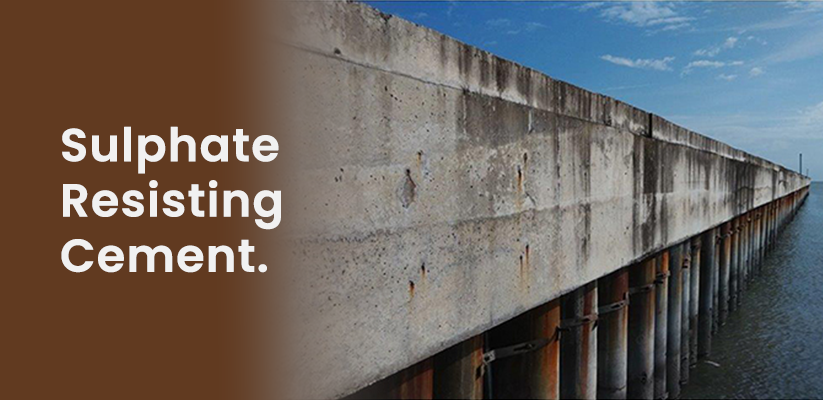Sulphate-resisting Cement has the property of resistance to mineralized water containing sulfates and is mainly used in underwater construction. This kind of cement increases the durability of concrete when subjected to aggressive environmental conditions reducing the risk of deterioration and structural failure. The quantity of tricalcium aluminate is less than 5% in Sulphate resisting cement. It is used in areas where there is a risk of damage to the concrete from any kind of sulfate attack. The prime criteria for cement to perform in tough conditions are that it has to be well compacted, dense and properly cured.
Post your Requirement
Sulphate-resisting cement is used in the following areas –
- Pile Foundations
- Basement Structures
- Construction in coastal areas that are within a 50 km radius of the sea.
- Sewage and Water Treatment Plants.
- Sea Walls, Dams, Reservoirs.
- Petrochemical and Food processing factories.
- This cement is resistant to chloride ions hence it acts as a barrier and reduces the effect of corrosion on reinforced steel.
- Sulphate-resisting Cement has improved later age strength. The Sulphate resistant Cement has to be kept dry and handled very carefully as even the moisture in the air can react with the cement to cause premature hydration and carbonation.
Sulphate Resistant Cement Composition
The generation of calcium sulpho-aluminates caused by the reaction of calcium sulphoaluminate and sulphate salts is significantly reduced when sulphate-resistant cement is used. The sulfate aluminates are extremely expansive and inflict the most damage to the concrete, on hydration, a very little amount of calcium aluminate is generated due to the very low range of tricalcium aluminate in sulphate-resistant cement.
SULPHATE-RESISTING CONCRETE BENEFITS
There are many benefits of sulphate resisting, but before knowing them you should know that Sulphate resisting Concrete must be prepared for specific underground construction activities in order to withstand the stresses and demands of such an environment. This is more than just ensuring that a mix reaches a specified strength or has waterproof characteristics through additives; concrete that may be susceptible to sulphate attack must be built as specifically resistant to sulphate attack.
The following are some of the benefits of sulphate-resistant concrete:
- Sulphate attack is avoided.
- Compressive strength is high.
- Maintains the strength and durability of concrete in a variety of constructions.
- Allows the usage of concrete in previously regarded aggressive or unsafe regions.
- Low hydration heat — aids in crack prevention.
WHAT EFFECT DO SULPHATES HAVE ON CONCRETE?
- Concrete that has been exposed to sulphates will develop cracks and spalls. Unprepared concrete will expand and be subjected to high strain over time due to a chemical interaction between sulphates and tricalcium aluminate, a substance used in the early setting of concrete.
- Sulphates have a long-lasting and comprehensive impact on concrete. The concrete loses its adhesive characteristics and consequently its strength as it expands. Furthermore, the concrete will crack significantly, layers will split and separate, and complete disintegration may occur.
- Due to the nature of many underground structures, strong compressive strength and dependable durability are always required when using concrete underground. Many of them will be foundations or integral, load-bearing structures, therefore any invasive damage that repeatedly undermines such a structure must be avoided.


















Post A Comment